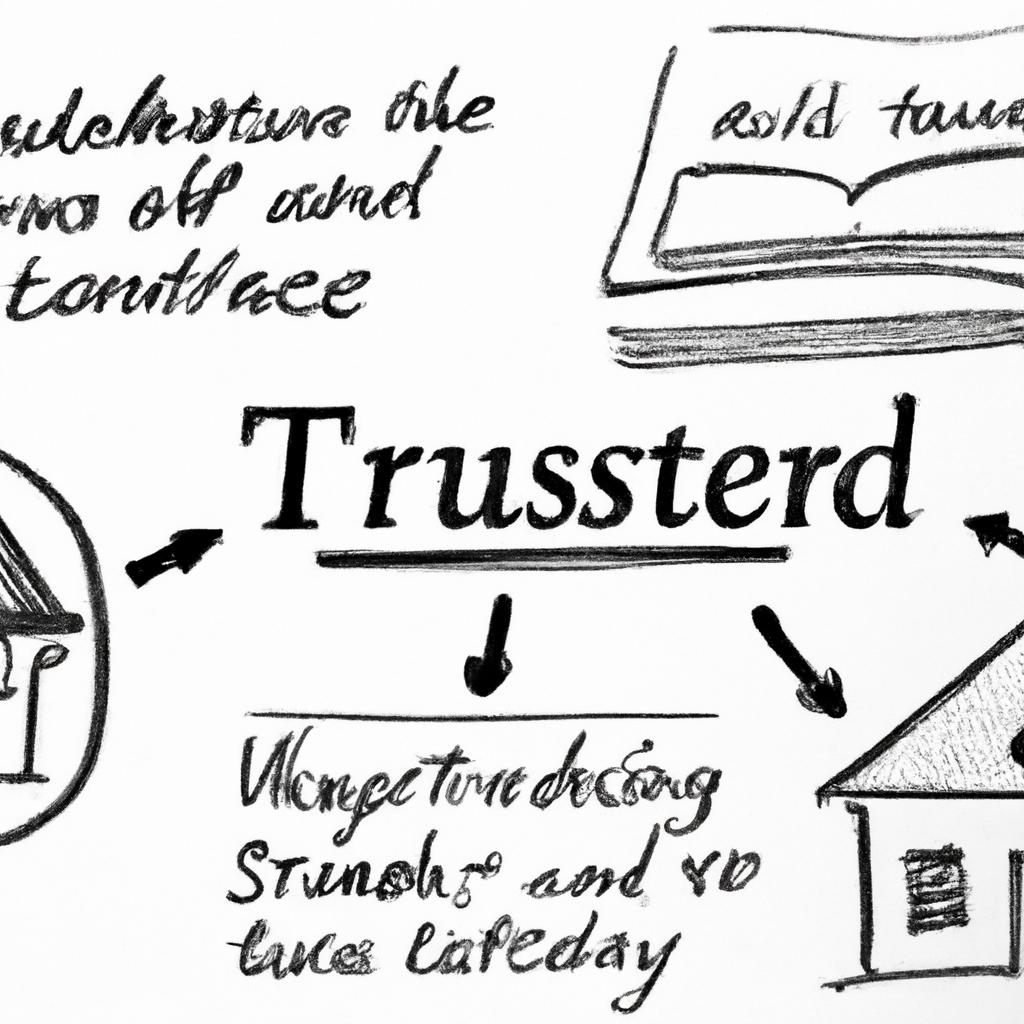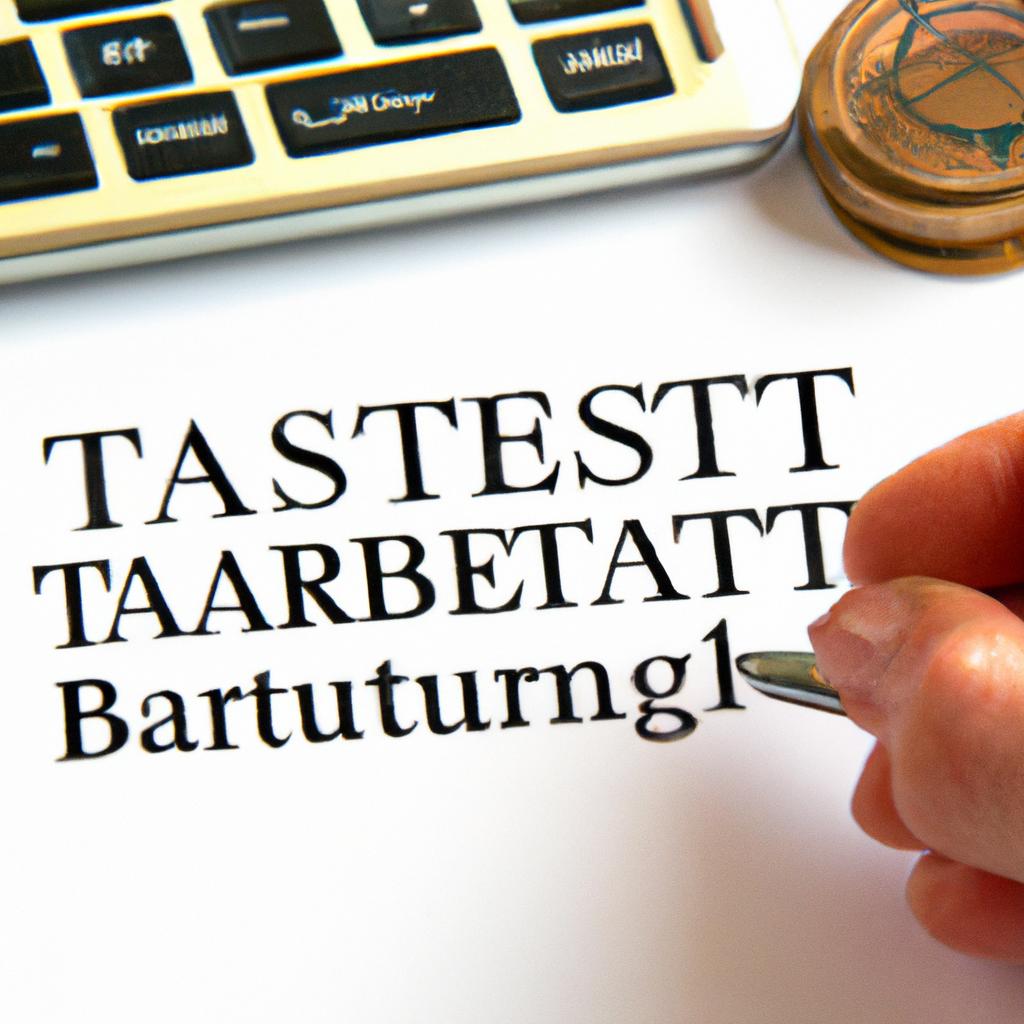As seasoned legal professionals at Morgan Legal Group in bustling New York City, we are well-versed in the intricacies of estate planning, probate, elder law, Wills, and trusts. Today, we delve into the complex world of trust estates, shedding light on what exactly they are and how they can benefit individuals seeking to secure their assets and ensure their loved ones are taken care of. Join us on this journey as we unravel the mysteries of trust estates and explore the various ways they can be utilized in estate planning.
Understanding Trust Estates: An Overview of Key Concepts
Trust estates, also known simply as trusts, are legal arrangements in which a trustee holds assets on behalf of beneficiaries. Trust estates are commonly used in estate planning to manage and protect assets, provide for loved ones, and minimize estate taxes. Understanding the key concepts of trust estates is essential for anyone looking to create a comprehensive estate plan.
Key concepts to grasp when it comes to trust estates include the following:
- Trustee: The individual or entity responsible for managing the trust and its assets.
- Beneficiary: The individual or individuals who receive the benefits from the trust, such as income or assets.
- Trustor/Grantor: The person who creates the trust estate and transfers assets into it.

The Benefits of Establishing a Trust Estate for Asset Protection
Establishing a trust estate can provide significant benefits when it comes to asset protection. One of the key advantages of creating a trust estate is that it allows individuals to protect their assets from creditors and legal claims. By transferring ownership of assets to a trust, those assets are no longer considered part of the individual’s personal property, making them less vulnerable to being seized in the event of a lawsuit or bankruptcy.
Furthermore, a trust estate can also help individuals minimize estate taxes and avoid probate. When assets are held in a trust, they are not subject to probate proceedings, which can be time-consuming and costly. Trusts can also help individuals maintain control over how their assets are distributed after their death, ensuring that their wishes are carried out according to their specific instructions.

Key Factors to Consider When Creating a Trust Estate
When creating a trust estate, there are several key factors that must be carefully considered to ensure that the trust is established in a way that aligns with the settlor’s intentions and achieves the desired outcome. One important factor to consider is the selection of a trustee. The trustee is responsible for managing the trust assets, making distributions to beneficiaries, and ensuring that the terms of the trust are carried out in accordance with the settlor’s wishes. It is crucial to choose a trustee who is trustworthy, competent, and able to fulfill their fiduciary duties in a responsible manner.
Another key factor to consider when creating a trust estate is the selection of beneficiaries. The beneficiaries are the individuals or entities who will receive the benefits of the trust assets. It is important to clearly identify the beneficiaries and outline their respective rights and interests in the trust. Additionally, the terms of the trust should clearly define the conditions under which beneficiaries may receive distributions, ensuring that the settlor’s goals and objectives are met. By carefully considering these key factors, a trust estate can be created that effectively protects and distributes assets according to the settlor’s wishes.

Expert Recommendations for Managing and Administering a Trust Estate
When it comes to managing and administering a trust estate, expert recommendations are crucial to ensure that the process is conducted smoothly and effectively. Trust estates are legal entities that hold assets on behalf of beneficiaries, requiring careful management to protect and distribute the assets according to the terms of the trust. Here are some key recommendations from experienced professionals:
- Regular Communication: It is essential to maintain open lines of communication with all parties involved in the trust estate, including beneficiaries, trustees, and legal advisors. Regular updates and discussions help to ensure that everyone is informed and on the same page.
- Document Everything: Keeping thorough records of all transactions, communications, and decisions related to the trust estate is crucial for transparency and accountability. Detailed documentation can also help to avoid misunderstandings or disputes in the future.
Q&A
Q: What is a trust estate?
A: A trust estate is a legal arrangement where a person (known as the trustor or settlor) transfers their assets to a trustee to manage on behalf of a beneficiary or beneficiaries.
Q: How does a trust estate work?
A: The trustee holds and manages the assets in the trust estate according to the terms and conditions set out in the trust agreement. The trustee has a fiduciary duty to act in the best interests of the beneficiaries.
Q: What are the benefits of creating a trust estate?
A: Creating a trust estate can help ensure that your assets are managed and distributed according to your wishes, provide for the financial needs of your loved ones, and potentially reduce estate taxes.
Q: Who can be named as a trustee in a trust estate?
A: A trustee can be a family member, friend, professional advisor, or a trust company. It is important to choose someone who is trustworthy and competent to manage the assets in the trust estate.
Q: Can a trust estate be revoked or amended?
A: Depending on the type of trust, it may be possible to revoke or amend a trust estate. However, it is important to carefully consider the implications of making changes to a trust estate and seek the advice of a legal professional.
Q: How is a trust estate different from a will?
A: A trust estate goes into effect immediately upon creation, whereas a will only goes into effect upon the death of the testator. Additionally, a trust estate can provide more privacy and flexibility in asset distribution compared to a will.
Future Outlook
In conclusion, a trust estate is a powerful tool that allows individuals to protect and manage their assets for the benefit of themselves and their loved ones. By creating a trust, you can ensure that your wishes are carried out exactly as you intend, both during your lifetime and after your passing. Understanding the complexities of a trust estate can be daunting, but with the right legal guidance and expertise, you can navigate the process with confidence and peace of mind. Trusts offer a unique way to plan for the future and secure your legacy for generations to come. So, whether you are considering setting up a trust for the first time or are looking to update an existing one, remember that a trust estate is more than just a legal document – it is a reflection of your values, hopes, and dreams for the future.
 SEO Keywords: trust estate, trustee, assets, beneficiaries
SEO Keywords: trust estate, trustee, assets, beneficiaries
A trust estate is an important legal tool used to manage and distribute assets to beneficiaries in accordance with the wishes of the person who created the trust, known as the grantor. A trust is a legal entity in which one party, the grantor, transfers ownership of assets to a second party, the trustee, who holds and manages these assets for the benefit of the third party, the beneficiaries. Trust estates are commonly used to protect assets, minimize taxes, and ensure smooth and efficient wealth transfer to loved ones. In this article, we will take a closer look at what a trust estate is, how it works, and why it may be a valuable addition to your estate planning strategy.
How Does a Trust Estate Work?
A trust estate is essentially a legal agreement between the grantor, trustee, and beneficiaries. The grantor creates the trust and transfers assets into it, while the trustee manages these assets on behalf of the beneficiaries. The grantor typically sets out specific instructions for how the assets are to be managed and distributed, giving the trustee the legal duty to follow these instructions and act in the best interests of the beneficiaries.
There are two main types of trust estates: revocable and irrevocable. A revocable trust can be altered or terminated by the grantor at any time, while an irrevocable trust cannot be changed or revoked. Each type of trust offers different benefits and considerations, and choosing the right one for your needs will depend on your unique financial situation and objectives.
Roles and Responsibilities in a Trust Estate
As mentioned, the grantor is the person who creates the trust and transfers assets into it. They also dictate the terms of the trust, such as who the beneficiaries are, when and how assets will be distributed, and any conditions that must be met for distribution. The grantor can also appoint a successor to manage the trust in the event of their death or incapacitation.
The trustee, on the other hand, is responsible for managing the assets held in the trust. They must adhere to the instructions laid out by the grantor and make decisions that are in the best interests of the beneficiaries. This can include managing investment decisions, paying bills and taxes, and distributing assets as directed by the grantor.
Finally, the beneficiaries are the individuals or entities who will ultimately benefit from the assets held in the trust. They may receive income from the trust, such as interest or dividends, or the trustee can distribute assets to them directly.
Benefits of a Trust Estate
There are several benefits to creating a trust estate as part of your estate planning strategy, including asset protection, privacy, and tax savings. By transferring assets into a trust, they are no longer considered part of your personal estate, providing protection from creditors and potential legal disputes. Trust estates can also be used to maintain privacy, as the details of the trust do not become public record like a will does.
In terms of tax savings, a trust estate can be an effective way to minimize estate taxes and protect a family’s wealth for future generations. Assets held in a trust are not subject to probate, which can be a lengthy and expensive legal process. Trust estates also provide more flexibility and control over how assets are distributed, allowing the grantor to provide for beneficiaries in a specific and structured manner.
Practical Tips for Setting Up a Trust Estate
If you are considering creating a trust estate, it is important to seek advice from a qualified estate planning attorney who can help you determine the best type of trust for your specific needs and goals. Here are some practical tips to consider when setting up a trust estate:
1. Determine your objectives and goals for the trust. This will help guide decisions such as which assets to transfer and how they should be managed and distributed.
2. Choose a trustworthy and competent trustee. This should be someone who understands your objectives and has the necessary experience and skills to manage the assets in the trust effectively.
3. Be specific and clear in your trust instructions. This will help prevent any confusion or misunderstandings in the future.
4. Keep the trust up to date. As life circumstances change, so may your objectives for the trust. It is important to review and update the trust periodically to ensure it still aligns with your wishes.
Real-Life Example of a Trust Estate
A trust estate can be a valuable tool for individuals and families of all backgrounds and financial circumstances. Here is a real-life example of how a trust estate successfully protected a family’s assets and ensured a smooth wealth transfer:
Sarah and John had been married for many years and had two adult children. They were concerned about leaving their assets to their children outright, as they were not financially responsible. They decided to create an irrevocable trust and appoint a third-party trustee to manage their assets and distribute them to their children according to their wishes.
When Sarah passed away, the trust was able to provide for her husband John while protecting their assets from any potential future creditors. After John’s passing, the trust assets were distributed to their children, who benefited from the tax savings and the structure provided by the trust.
In conclusion, a trust estate is a powerful tool that can offer a range of benefits for individuals and families looking to protect their assets and ensure a smooth transfer of wealth to their loved ones. By understanding how a trust estate works and seeking professional guidance, you can create a solid and comprehensive estate plan that meets your unique needs and objectives. Consider implementing a trust estate as part of your estate planning strategy to provide peace of mind and security for you and your loved ones.

